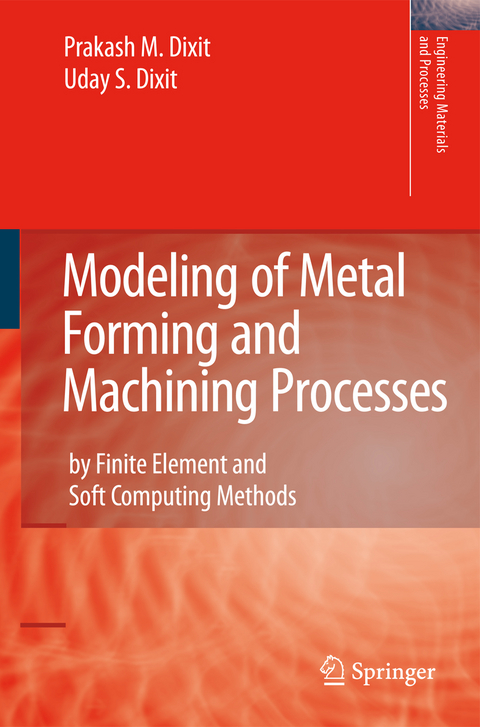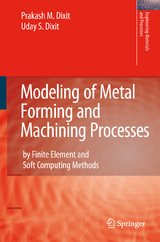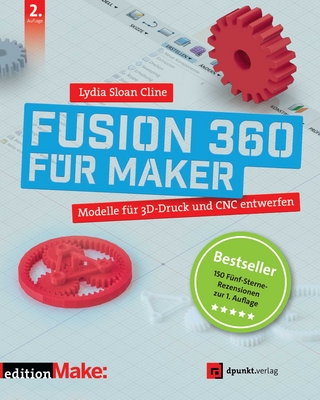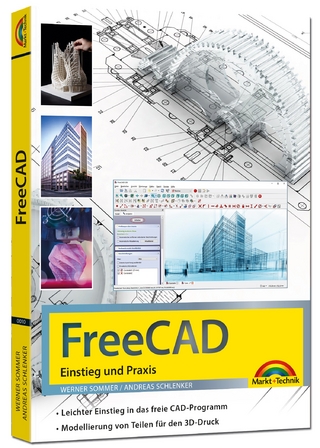Modeling of Metal Forming and Machining Processes
Springer London Ltd (Verlag)
978-1-84800-188-6 (ISBN)
Prof. P. M. Dixit has been actively working in the area of metal forming, machining and non-traditional machining for the past 20 years. He has published extensively in leading international journals and carried out projects in the area of metal forming and large deformation. He also teaches Metal Forming, Plasticity and FEM to postgraduate and senior undergraduate students. Prof. P.M. Dixit obtained his bachelors degree in Aeronautical Engineering from the Indian Institute of Technology, Kharagpur, in 1974. He was awarded a silver medal for securing the first rank in the Department. Subsequently, he obtained his doctoral degree in Mechanics from the University of Minnesota, Minneapolis, U.S.A, in 1979. After receiving his Ph.D. degree, Prof. Dixit taught at the Aeronautical Engineering Department of the Indian Institute of Technology, Kharagpur for 4 years (1980-1984). Since 1984, Prof. Dixit has been teaching at the Mechanical Engineering Department of the Indian Institute of Technology, Kanpur. Prof. U. S. Dixit has more than a decade’s experience in carrying out research in the area of metal forming and machining. Apart from FEM, he uses fuzzy set theory and neural networks in his research. Before taking up a research career, he worked for four years as a machine tool designer in HMT Ltd. Pinjore, India. He has a number of publications, some of them jointly with Prof. P.M. Dixit. Prof. U. S. Dixit is currently a Professor of Mechanical Engineering at the Indian Institute of Technology in Guwahati. Prof. U. S. Dixit obtained his bachelors degree in Mechanical Engineering from the Indian Institute of Technology, Roorkee in 1987. He gained his M. Tech in Mechanical Engineering and his Ph.D. in Mechanical Engineering from the Indian Institute of Technology, Kanpur, in 1993 and 1998 respectively.
Metal Forming and Machining Processes.- Review of Stress, Linear Strain and Elastic Stress-Strain Relations.- Classical Theory of Plasticity.- Plasticity of Finite Deformation and Anisotropic Materials, and Modeling of Fracture and Friction.- Finite Element Modeling of Metal Forming Processes Using Eulerian Formulation.- Finite Element Modeling of Metal Forming Processes Using Updated Lagrangian Formulation.- Finite Element Modeling of Orthogonal Machining Process.- Background on Soft Computing.- Predictive Modeling of Metal Forming and Machining Processes Using Soft Computing.- Optimization of Metal Forming and Machining Processes.- Epilogue.
| Reihe/Serie | Engineering Materials and Processes |
|---|---|
| Zusatzinfo | XVI, 590 p. |
| Verlagsort | England |
| Sprache | englisch |
| Maße | 155 x 235 mm |
| Themenwelt | Informatik ► Grafik / Design ► Digitale Bildverarbeitung |
| Technik ► Maschinenbau | |
| Schlagworte | Soft Computing |
| ISBN-10 | 1-84800-188-6 / 1848001886 |
| ISBN-13 | 978-1-84800-188-6 / 9781848001886 |
| Zustand | Neuware |
| Haben Sie eine Frage zum Produkt? |
aus dem Bereich




